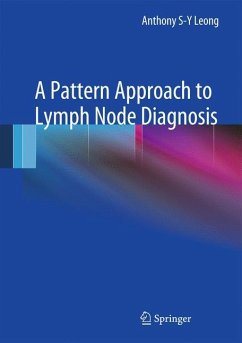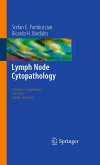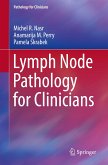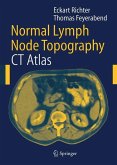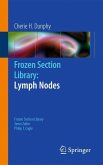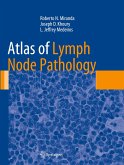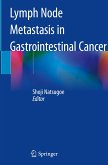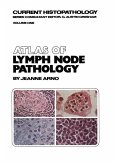While a pattern approach to diagnosis is taught and practiced with almost every other tissue or organ in the body, the lymph node remains a mystery to most residents starting out in pathology and those pathologists with limited experience in the area.
A Pattern Approach to Lymph Node Diagnosis demonstrates that a systematic approach to lymph node examination can be achieved through recognition of morphological patterns produced by different disease processes. It presents a combination of knowledge-based assessment and pattern recognition for diagnosis covering the major primary neoplastic and non neoplastic diseases and metastatic tumors in lymph nodes. This volume demonstrates that lymph node compartments can be recognized histologically especially with the aid of immunohistological markers and how this knowledge can be employed effectively to localize and identify pathological changes in the different compartments in order to facilitate histological diagnosis. It also defines histological features that, because of their pathological occurrence in lymph nodes, are useful pointers to specific diagnoses or disease processes. The volume is organized in accordance with the primary pattern of presentation of each diagnostic entity. Differential diagnosis is discussed and each diagnostic entity is accompanied by color illustrations that highlight the diagnostic features. Immunohistochemistry, clinical aspects, relevant cytogenetics and molecular information of each entity is provided by authors who are experts in lymphoproliferative diseases. An algorithmic approach to diagnosis is adopted at the end of each section by listing a set of questions that help to consider diagnostic entities that can present with the morphological features observed.
A Pattern Approach to Lymph Node Diagnosis will be of great utility to residents and fellows in pathology and general pathologists making first hand lymph node diagnoses as well as to hematologists and physicians who treat patients with lymphoprolifeative diseases.
A Pattern Approach to Lymph Node Diagnosis demonstrates that a systematic approach to lymph node examination can be achieved through recognition of morphological patterns produced by different disease processes. It presents a combination of knowledge-based assessment and pattern recognition for diagnosis covering the major primary neoplastic and non neoplastic diseases and metastatic tumors in lymph nodes. This volume demonstrates that lymph node compartments can be recognized histologically especially with the aid of immunohistological markers and how this knowledge can be employed effectively to localize and identify pathological changes in the different compartments in order to facilitate histological diagnosis. It also defines histological features that, because of their pathological occurrence in lymph nodes, are useful pointers to specific diagnoses or disease processes. The volume is organized in accordance with the primary pattern of presentation of each diagnostic entity. Differential diagnosis is discussed and each diagnostic entity is accompanied by color illustrations that highlight the diagnostic features. Immunohistochemistry, clinical aspects, relevant cytogenetics and molecular information of each entity is provided by authors who are experts in lymphoproliferative diseases. An algorithmic approach to diagnosis is adopted at the end of each section by listing a set of questions that help to consider diagnostic entities that can present with the morphological features observed.
A Pattern Approach to Lymph Node Diagnosis will be of great utility to residents and fellows in pathology and general pathologists making first hand lymph node diagnoses as well as to hematologists and physicians who treat patients with lymphoprolifeative diseases.
From the reviews:
"The emphasis of this overview of lymph node pathology is on the morphology of benign and malignant lymph node disorders. ... The book is written primarily for trainees in pathology and general/community pathologists ... . Hematopathology fellows and practicing hematopathologists also will find this book useful. ... This is a practical book written primarily for surgical pathologists ... . This book is a valuable contribution to the field ... . It will find its place on the shelves of surgical pathologists, hematopathologists, and pathology trainees." (Anamarija M. Perry, Doody's Review Service, April, 2011)
"A pattern approach to lymph node diagnosis ... is a welcome addition to the books that are available for hematopathologists. ... a valuable book to use and find information during the process of evaluating a lymph node. ... It is written especially for residents and fellows, general pathologist ... . The book is very richly illustrated ... ." (J. Han van Kricken, Journal of Hematopathology, Vol. 4, 2011)
"The emphasis of this overview of lymph node pathology is on the morphology of benign and malignant lymph node disorders. ... The book is written primarily for trainees in pathology and general/community pathologists ... . Hematopathology fellows and practicing hematopathologists also will find this book useful. ... This is a practical book written primarily for surgical pathologists ... . This book is a valuable contribution to the field ... . It will find its place on the shelves of surgical pathologists, hematopathologists, and pathology trainees." (Anamarija M. Perry, Doody's Review Service, April, 2011)
"A pattern approach to lymph node diagnosis ... is a welcome addition to the books that are available for hematopathologists. ... a valuable book to use and find information during the process of evaluating a lymph node. ... It is written especially for residents and fellows, general pathologist ... . The book is very richly illustrated ... ." (J. Han van Kricken, Journal of Hematopathology, Vol. 4, 2011)

